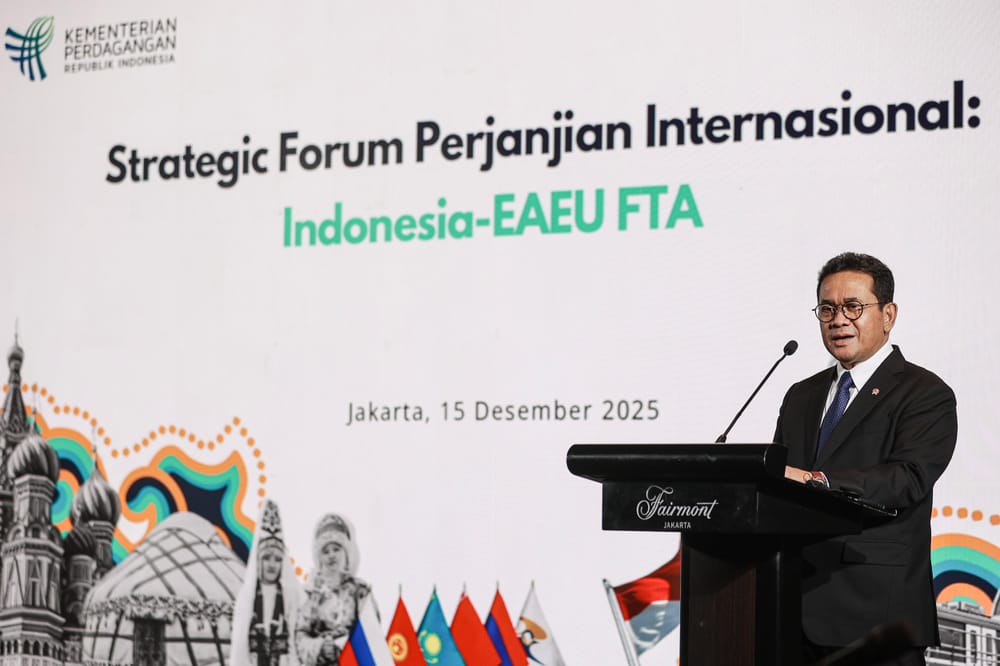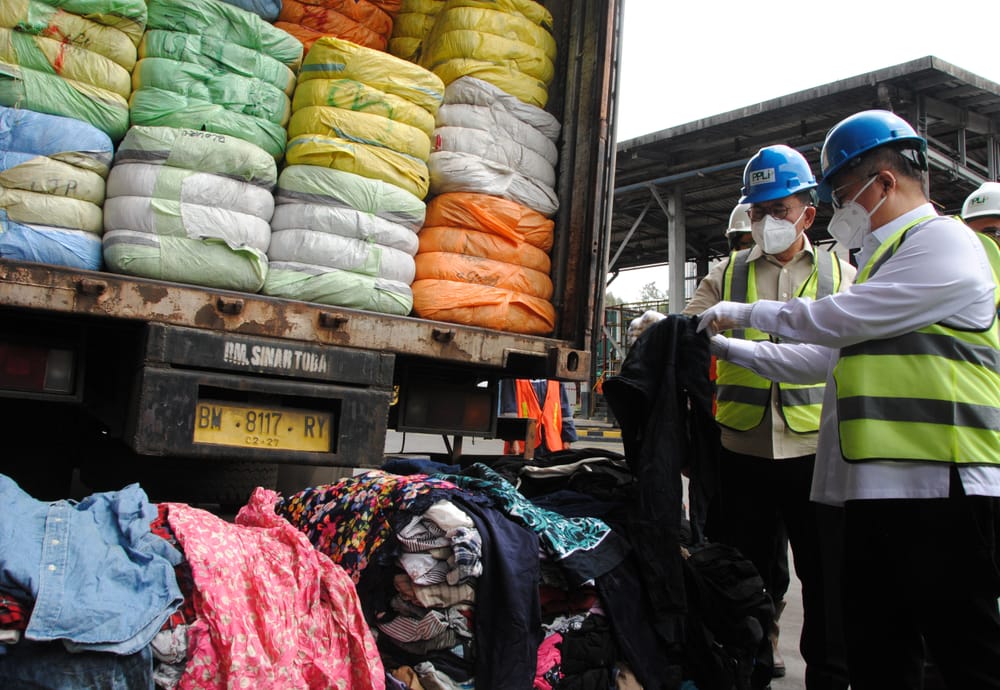Indonesian shrimp in the homeland is experiencing a dizzying double blow. Competition is getting tougher due to the trade war, and there is also an appeal from the United States authorities after the discovery of the radioactive element Cesium (Cs-137) in a batch of shrimp exports from Indonesia.
To overcome this prolonged problem, industry players expect the government to assert its position to the US authorities to save the industry, which is on the brink.
As widely reported, Indonesian shrimp exports recently faced obstacles after the US Food and Drug Administration (FDA) stated that one export batch from PT Bahari Makmur Sejati (BMS) was contaminated with radioactive exposure. However, the issue has yet to be resolved.
Because after advising that frozen shrimp from Indonesia should not be consumed by or sold to the American public, the FDA demanded an explanation of the root cause and stated that this issue has escalated into a government-to-government (G2G) matter.
In an open statement to former Minister of Maritime Affairs and Fisheries Susi Pudjiastuti received by SUAR on Wednesday (10/9), the Shrimp Club Indonesia association stated that shrimp industry players are facing uncertainty. After nearly a month of dialogue with government officials, SCI has not found a solution to this problem, while the situation on the ground is deteriorating.
Shrimp prices in several regions have plummeted by more than 30%, especially in Aceh and North Sumatra. This is because PT BMS is the largest exporter, dominating 80% of Sumatra's shrimp purchases. Due to the factory closure that occurred after the FDA's findings, shrimp farmers were forced to harvest earlier and sell at low prices. As a result, there is an oversupply that impacts the domestic shrimp market.
Unable to do much
An industry source who declined to be named stated that the Cs-137 finding case is different from the case of finding additive antibiotic content in a batch of Indonesian shrimp exports to Europe some time ago. In this case, industry players are completely unable to prevent exposure from occurring.
"In this situation, farmers are not at fault, factories are not at fault, additive sellers are not at fault, and processors are also not at fault. Because, all these links are victims of external contamination which, according to Bapeten, comes from pollution from metal processing plants in the final industrial area. Because this is beyond the capabilities of industry players, we ask the government to pay attention to this issue as a G2G problem," said the source when contacted by SUAR on Wednesday (10/9).
The source stated that what the FDA wants is not complicated. Namely, an explanation of the root cause and an answer from the Indonesian Government that can be represented by the Ministry of Maritime Affairs and Fisheries (KKP) or the Ministry of Trade.
The source stated that what the FDA wants is not complicated. Namely, an explanation of the root cause and an answer from the Indonesian Government.
However, instead of providing official information accompanied by quantitative measurement results from Bapeten, the government only provided verbal clarification.
"We can't do anything. We cannot ask farmers or factories to do something because the fault is not theirs. Only the government can overcome this radioactive problem. Unfortunately, the government is defensive and conveys things that the US does not want," said the source.
"This unclear answer makes the US Government even more curious," he continued.
If this uncertainty is not immediately resolved by the government, industry players fear that orders may soon be withdrawn from potential and regular buyers in other countries. "The losses that have occurred will take a very long time to recover to their original state," concluded the source.

Considered incidental
Responding to the complaint, the Head of the Marine and Fisheries Product Quality Control and Supervision Agency of the Ministry of Maritime Affairs and Fisheries (KKP), Ishartini, stated that she had provided an answer to the FDA. "Everything has been explained to the FDA," said Ishartini briefly when contacted by SUAR on Wednesday (10/9).
In a previous press statement, Ishartini stated that the radioactive issue in Indonesian frozen shrimp products was incidental and casuistic, and did not occur in other places and containers. The KKP has followed up and the FDA has placed a red list only on shrimp products from PT BMS in the Cikande industrial area, Banten.
Bapeten found suspected radioactive exposure on the outside of the PT BMS factory area in Cikande. Namely, it comes from contamination of scrap iron through the air and metal processing plants around the area.
With the temporary suspension of production and localization of the factory area to prevent further risks to other product batches, the KKP has involved BRIN, the police, and the Ministry of Environment and Forestry to review the location and provide comprehensive handling.
"This case is casuistic, only occurring in certain shipments, so it does not affect other additions. With quick steps, cross-agency coordination, and information transparency, we are committed to maintaining export reputation, ensuring Indonesian shrimp is safe for consumption, and trusted by the international market," said Ishartini.
Trust is crucial
Lecturer in fisheries product technology at the Faculty of Agriculture, Gadjah Mada University, Indun Dewi Puspita, assessed that this case should be a lesson for all stakeholders, from farmers, processors, to exporters and the government.
"This problem should not be underestimated. Because rejection from an economic perspective is a significant loss, especially because the exported product cannot be consumed or utilized at all. As a result, Indonesian fishery products are now being investigated by the global market, and product quality must be carefully considered," said Puspita, Thursday (21/08).
Puspita stated that the trust of the international market is crucial. Strict certification and high food safety standards are set not without reason, but to meet buyers' expectations that the products consumed will not pose a risk, even in the long term.
"This case illustrates that a small gap in the production chain can have a long impact on buyer confidence. Problematic product quality issues will have a long-term impact on sales and product selling prices in the future," she concluded.
"This case illustrates how a small gap in the production chain can have a lasting impact on buyer confidence," said Puspita.
To address this issue in the long term, Gadjah Mada University has developed a rapid early detection instrument to prevent contamination in fishery products. In addition, involving universities and scientific research in guidance and reaching out to industry players needs to be done.
"Universities play an important role in research, enriching industry players about safety, and developing standardization policies to prevent biological or chemical contamination in fishery products," said Puspita.






